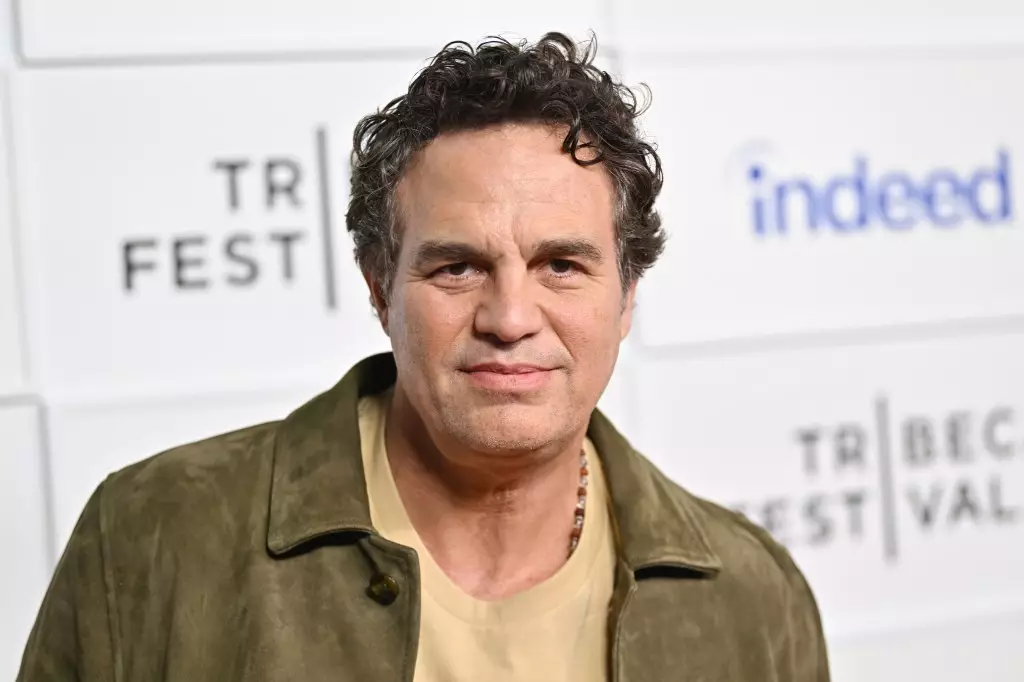In recent weeks, a storm has been brewing around the suppression of free expression within mainstream media, revealing a troubling trend that threatens the core of American democratic values. The case of Jimmy Kimmel’s sidelining illustrates more than just a ratings decision—it’s emblematic of a broader attempt to silence dissent and shape public discourse through corporate and governmental pressure. It is vital to recognize that when influential figures like Mark Ruffalo and Tatiana Maslany speak out, they act as beacons of resilience, standing up against an encroaching silence that seeks to curb honest dialogue.
Beyond the surface, what this episode underscores is a dangerous convergence of corporate interests and political agendas dictating what can and cannot be communicated to the American public. The decision by Disney and affiliate owners to preempt Kimmel’s show—ostensibly due to pressure from government bodies and conservative conglomerates—undermines the very principles of free speech that underpin the nation’s identity. This isn’t merely about a comedy show; it is about whether Americans will have the space to critique, debate, and challenge those in power without fear of retribution.
The Economic and Cultural Fallout of Suppressing Truth
Financial markets immediately responded to this censorship, with Disney’s stock experiencing a notable dip. The market’s reaction signals that censorship isn’t just a moral issue—it’s a monetary one. Investors are increasingly sensitive to corporate actions that could alienate audiences or besmirch a company’s reputation. When a company bows to external pressures at the expense of journalistic integrity or artistic expression, it risks alienating its consumer base, which can have lasting economic repercussions.
More concerning is the cultural decay that occurs when voices like Kimmel’s are muted. Comedy, satire, and critique serve as vital mechanisms for societal self-examination. When these are silenced, it becomes easier for authoritarian tendencies to flourish. The media’s role as a watchdog is weakened, and public trust diminishes as the dialogue becomes filtered and sanitized. It is a betrayal of democracy when corporations, influenced by political pressure, decide which conversations are permissible.
The Courage of Fighters for Free Speech
What makes this situation inspiring is the active resistance among Hollywood actors, writers, and industry insiders who refuse to remain silent. Ruffalo, Maslany, Pascal, and others are not just commenting from afar—they are actively challenging the suppression. Their outspoken criticism reflects a broader recognition that defending free speech must be an ongoing societal responsibility, not just a fleeting act.
The protest actions undertaken at Disney’s lot and the public condemnations framing the move as “venomous” reflects a growing awareness that silence in the face of unjust censorship perpetuates the problem. When prominent figures leverage their platforms to oppose censorship, they embolden others to stand firm. They understand that preserving the integrity of public discourse is a collective fight that requires more than passive disagreement; it demands active resistance.
The Political Climate and Its Impact on Media Independence
The influence of political figures and government officials in the censorship of Kimmel exposes the fragility of American media independence. The FCC chair’s explicit threats signaling potential regulatory action reveal an alarming trend: political figures are increasingly weaponizing regulatory bodies to enforce ideological conformity. This politicization threatens the very essence of a free press—one that operates without undue influence from the powerful.
Moreover, the support from conservative media groups and affiliates pulling the show demonstrates how partisan interests can override journalistic and artistic pursuits. Sinclair’s demand for an apology and donation before lifting their suspension illustrates a form of censorship motivated by political motives rather than actual misconduct. It is a slippery slope when corporate entities begin acting as proxies for political agendas, ultimately undermining the diversity of viewpoints that is essential for a thriving democracy.
Defending the Right to Speak Freely in a Polarized World
The case of Kimmel and the reactions it has provoked serve as a wake-up call: the fight for free speech is ongoing and increasingly necessary in a society marked by polarization. When the highest levels of media and government threaten to silence voices they disagree with, it sets a dangerous precedent that could threaten every right to dissent. It is crucial for Americans to understand that protecting free speech requires vigilance and active participation.
The collective reactions—from condemning censorship to calling for boycotts—are signs of a healthy democratic instinct: standing against attempts to stifle honest conversation. These acts of defiance challenge the powers that seek to control narratives and remind us that democracy thrives on the free exchange of ideas, even if those ideas are inconvenient or uncomfortable for some. The resilience of these voices will determine whether the core principles of free expression survive the current climate of suppression.
